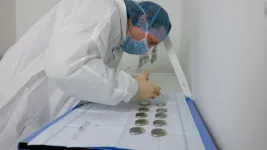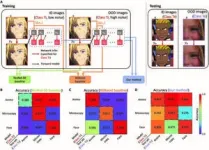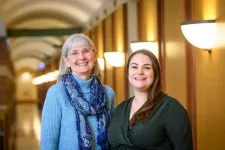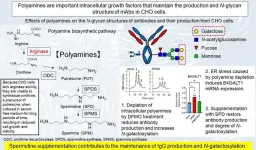From inside an operating room in Barquisimeto, Venezuela, electrophysiologist Maria Milagros Arends, M.D., threads wires from a pacemaker through the veins and into the heart muscle of a patient.
This pacemaker, which regulates the heartbeat and can be lifesaving, was once in the body of another person. It has been recycled, or “reconditioned”— donated, tested, sterilized and shipped from the United States to the South American country for implantation.
“We have a waiting list of around 300 people who could potentially lose their lives in less than a month,” said cardiologist Bartolome Finizola, M.D., founder and director of ASCARDIO, a nonprofit health care organization founded in 1976 that performs over 100,000 diagnostic and therapeutic procedures each year in Venezuela.
“Almost nine out of every 10 patients live in poverty conditions and are therefore unable to easily access a pacemaker implant," he said. "Implanting these reconditioned devices has been our solution and around one in seven that we do comes from our partnership with the University of Michigan.”
The process of servicing medical devices for reimplantation in life-threatening cases with no alternative, known as compassionate use, is not new. Pacemakers, however, are considered single-use devices in the U.S. and cannot be reimplanted in such situations.
Researchers and clinicians at the U-M Health Frankel Cardiovascular Center began sending reconditioned pacemakers to low- and middle-income countries for compassionate use cases in 2010 through the “My Heart Your Heart” program. The project offers the chance for American patients who are preparing to have their pacemaker removed for a new device, and the survivors of a person who died with a pacemaker in place, to consent to donate the device.
Surgeons have since reimplanted approximately 150 of these compassionate use devices in South America, Africa, Asia and Europe.
And the U-M team is leading a clinical trial in low- and middle-income countries that is testing the impact of sending reconditioned pacemakers abroad for standard use. If successful, the trial could greatly increase access to pacemaker treatment for patients who otherwise would not receive it.
“I don’t believe that there’s any other effort on this scale in the world that’s trying to create a blueprint for how to safely recondition pacemakers and offer them to patients at no cost,” said the study’s principal investigator Thomas C. Crawford, M.D., a cardiac electrophysiologist at the Frankel Cardiovascular Center and medical director of the program.
Landmark clinical trial
The international, randomized clinical trial of post-mortem pacemaker utilization, which is still enrolling patients, began in October of 2018, with sites in countries including Venezuela, Kenya and Nigeria.
“We’ve been met with a lot of enthusiasm from different countries,” Crawford said. “After overcoming the regulatory obstacles, we’ve been able to provide devices to physicians who really know what to do with them, and we’ve helped to train many of them.”
As a part of the clinical trial, patients are either given new pacemakers or those that have been reconditioned in the U.S. Pacemaker recipients are individuals who are unable to pay for a new device and for whom all other methods for acquiring one are exhausted.
SEE ALSO: U-M Health performs its first heart transplant after cardiac death
The main method of determining if the reconditioned pacemakers are successful is whether recipients have infections related to the device implantation, as well as any software or hardware malfunctions.
Over 200 patients have already enrolled in the trial, with more than 100 coming from ASCARDIO in Venezuela.
“Proof of the safety of these devices would give us the opportunity to win time for even more of our patients,” said Vicente Finizola, M.D., interventional cardiologist at ASCARDIO and board member of the Venezuelan Society of Cardiology.
“It could shorten the long waiting list we already have.”
Investigators have a goal of 260 patients and hope to complete it by October 2025.
“If the trial shows positive results, we could scale this up and create a self-sustaining operation to allow for large-scale pacemaker reconditioning and donations to low-income countries,” Crawford said.
“Reconditioning” a pacemaker
The program got its start more than a decade ago when the spouse of a recently deceased patient called Timir S. Baman, M.D., who was then a cardiology fellow.
The caller's wife died soon after receiving a pacemaker implantation, and they did not want the device to go to waste. Pacemakers can remain in the body for around 15 years.
“It got us looking into the possibility of reconditioning these pacemakers,” Crawford said. “We looked at the literature, and it set us on the path to where we are today.”
The chance encounter sparked a multidisciplinary partnership; an assembly line of charitable people and organizations dedicated to providing the devices at no cost.
Anchoring the line is Eric Puroll, the program’s project manager, who splits his time between the university and a lab donated by World Medical Relief, a non-governmental organization in Southfield, Mich.
“This requires a lot of hard work and some tedious work,” Puroll said. “But it’s a labor of love and time.”
When a person who has indicated their wish to donate a pacemaker dies, the funeral home handling their preparations request a prepaid shipping envelope from Ann Arbor, as well as a consent form for the deceased person's family to sign and a biohazard bag for the pacemaker.
Although the majority of their devices initially came from Michigan funeral homes, the project now receives pacemakers from all 50 states. Individuals who have a pacemaker but are scheduled to get a new one implanted can also consent to donate the one being removed from them.
“For years, most of the pacemakers that are explanted from decedents would either end up in medical waste bins or trash,” said Kiki Rodgers, licensed funeral director at Nie Family Funeral & Cremation Service in Ann Arbor.
“It is truly a wasted resource otherwise. But if you can do something additional and it is a lifesaving measure for someone else, why not be involved?”
If a device has more than four years of remaining battery life, the process moves forward. Those deemed unusable are sent to Implant Recycling in Sterling Heights, Mich.
Puroll and his team of volunteers then remove the pacemaker’s patient health information and ship it to Northeast Scientific, Inc., a Connecticut-based company that specializes in remanufactured medical devices.
“They clean and decontaminate the device, as well as remove the set screw in the screw cap,” Puroll said.
“They ship the device back to us, and we electrically test the device to make sure all the parameters are met. We dip the device in silicone solution and send it back to Northeast Scientific to bathe the pacemaker in ethylene oxide. Then, the device is ready for reimplantation.”
Changing lives abroad
In Venezuela, the team at ASCARDIO implanted more than 135 reconditioned pacemakers in 2023. Of those, over 100 came from Ann Arbor.
The partnership did not start by Finizola contacting U-M or the other way around. Much like the genesis of My Heart Your Heart, it began with a patient’s concerned family member.
“In 2020, I was looking for a replacement pacemaker battery for my mom,” said Azorena Aponte, a New York City resident whose mother lives in Barquisimeto, Venezuela.
“I decided to reach out to a few places, NGOs and so on. One that popped up was this program, My Heart Your Heart. No one answered me except for Eric Puroll. He quickly sent me two devices, in case one of them was faulty.”
Aponte shipped the pacemakers to Venezuela, and her mother’s reimplantation was successful.
A few weeks later, Crawford called Aponte looking for help to find a partner for the program in Latin America. From the east coast, she connected U-M and ASCARDIO, and the two organizations formalized the partnership with approval from Venezuela’s ministry of health.
“This is something I felt like God kind of threw at us,” Aponte said. “I took the opportunity and ran with it. There are a lot of people involved in this process.”
While pacemakers are mostly a treatment for older adults, and the clinical trial is limited to people over the age of 18, several compassionate use re-implantations have saved younger patients, even one as young as 12 years old.
“We had one patient under 20 years old who was functionally very limited before receiving her pacemaker,” Finizola said. “Now, she is healthy and gave us good news that she is expecting a baby.”
While there have been few adverse events after implantation over the last 10 years, as would be expected with any kind of pacemaker surgery, no devices have been reported as faulty. During his visits, Crawford follows up with patients who received implants.
The impact, he says, can be immediate.
“We see their quality of life improve; many of them are able to breath normally and exercise, to a degree, again,” Crawford said.
“Many times, patients who are having dizzy spells, who were not able to walk across a room, can function almost normally. It’s very rewarding to see that.”
The future of My Heart Your Heart
In Michigan, the notes, photos and videos of patients with their new pacemakers, Puroll says, keeps him and the volunteers motivated.
“Seeing patients receive the devices that we put our blood, sweat and tears into, it means everything,” he said.
“To be able to give back to people who can’t afford the same care that we can — that we often take for granted — pushes me to continue this work for as long as possible.”
As the trial continues, the team at the Frankel Cardiovascular Center aren’t limiting the project’s scope to pacemakers.
“I see unlimited growth for My Heart Your Heart,” said Kim Eagle, M.D., founder of the program and a director of the Frankel Cardiovascular Center.
“Beyond this trial, we could one day test the safety and efficacy of other implantable devices, specifically biventricular pacemakers, defibrillators and implantable cardioverter-defibrillators. This program represents exactly what we stand for at U-M. We will continue to push forward in a way that improves lives across the globe.”
My Heart Your Heart has unlimited appreciation for our partners at funeral homes, World Medical Relief, Northeast Scientific, Inc., and Implant Recycling. The program is funded entirely by donors, foundations and the U-M Health Frankel Cardiovascular Center.
END





